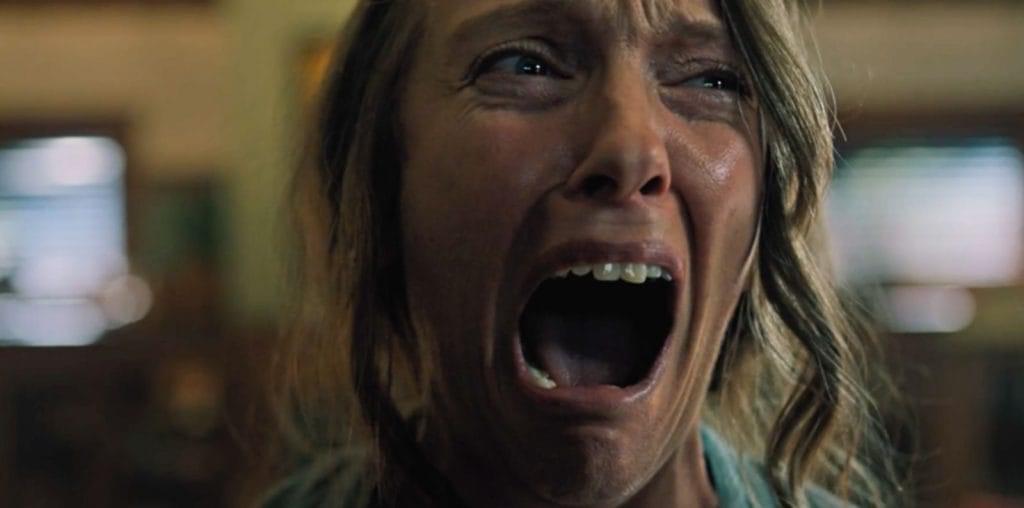
In lavish New York apartments designed by Santo Loquasto and cinematographer Vilmos Zsigmond molding New York lighting to his specifications, Woody Allen has finally gotten out of whatever kept him down at DreamWorks through “The Curse of the Jade Scorpion”, “Hollywood Ending” and “Anything Else”, all movies that didn’t feel like him, didn’t represent anything of what he usually does well. For example, in “Hollywood Ending” it was a huge shock to find him trying physical comedy, which he clearly had no talent in executing.
“Melinda and Melinda” puts him right back to being a satisfying maestro, trying new methods, this time splitting his story. Each comic and dramatic story involves the same woman, Melinda (Radha Mitchell, ably performing twice), who either unexpectedly arrives to see her long-time friends (Chloe Sevigny, Jonny Lee Miller, and Brooke Smith) or interrupts a dinner party (hosted by Will Ferrell and Amanda Peet) near her apartment because she’s taken too many sleeping pills. The impetus to these stories begins with Allen’s good eye toward actors, featuring Wallace Shawn and Larry Pine as a comedic and dramatic playwright, respectively, trying to hash over whether life is better as comedy or tragedy. In other words, which sells better at the theater? Do people want to escape their problems or face them and have a cathartic experience? Thankfully, Allen makes up for Shawn’s dismal appearance in “Curse of the Jade Scorpion” by casting him to his strengths, that of a writer, of a thinking man who never stops considering, believing, and wondering. In a sense, Allen asks what good it is if a writer stops asking questions of all that’s around him or her.
The story continues on its dual paths as Melinda spills out her sad, affecting story to Laurel (Sevigny) and Lee (Miller), and Melinda joins indie filmmaker Susan (Peet) and her out-of-work actor husband Hobie (Ferrell) and their friends for dinner. But with this being Allen’s New York, there has to be some pretension somewhere. Lee complains and asks Laurel how long he has to keep up this “obsequious conversation” with their guests, only necessary as he’s gunning for a part in what sounds like a big important play to him. The dramatic story’s characters speak intimidating words but never really act on anything. They want, and yet they think they can’t have. Meanwhile, Hobie serves as the chef for Susan’s evening with a film producer who can possibly give her the two million she needs and wants for her six-million-dollar budget. In these worlds, everyone wants, but they never look. They speak, but never listen. They act, but never think. That’s what makes the conclusion of the dramatic side equally ironic when infidelity comes into play.
Even when his material fails him, Allen has never lost his desire for good actors and constantly casts the most respectable. Peet has self-centered-and-absorbed Susan down perfectly, while Chloe Sevigny can at least speak the daunting language of Laurel, which keeps her away from where there must be true happiness, even if it seems that it’s with Ellis Moonsong (Chiwetel Ejiofor), a musician from Harlem who has a passion that takes her aback, though Melinda likes him too for that reason. Ejiofor is consistently admirable, a dignified presence in sometimes undignified worlds, even when the people living in those worlds don’t notice their own messes. Will Ferrell must have been balancing on a wire on the floor as it’s not quite certain what he’s after. Neurotic like Allen (though Allen uses his hands and voice inflections more) and unsure, though maybe it’s a combination of his talents and most certainly Allen’s direction. As with other friends of these people, Steve Carell drops in as Hobie’s best friend, though ultimately, as each of them realizes, no advice really helps them. It’s all up to what they want and them alone.
And that brings around Radha Mitchell, who never teeters or falters as both Melindas. Alisa Lepselter’s editing makes this even more apparent as one story switches to the other and back again, sometimes without the conversation of the two playwrights and that’s alright. For every moment where it’s a pleasure to see Wallace Shawn aged and admirably well-spoken (and thankfully still alive for the pleasure of his concentrated voice), Mitchell makes even more of a staggering impression. She’s everything that actresses like Tea Leoni and Michelle Pfeiffer would strive for, and always accesses those emotions at just the right moments, including where, in complete nervousness, she tries to explain to Laurel and Cassie (Brooke Smith) what she plans to do when meeting who they have set her up with, framing her hands around her hair, showing how she will work that, all the while with a cigarette perched between two left-hand fingers.
All the inner workings of “Melinda and Melinda” show that Allen has finally risen above, returned to his position as a fine filmmaker. His latest, “Match Point”, has not yet been seen by me, but after the late-afternoon-walk-in-the-park pleasures of this one, I’m excited to see his movies again. Finally.
